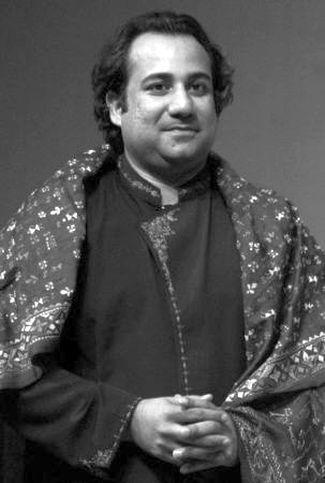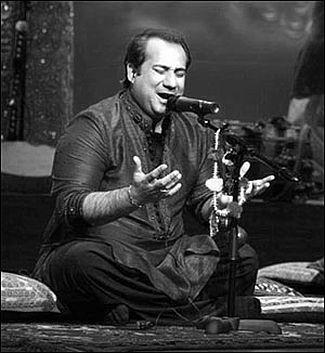Hindus in Pakistan are watching helplessly as ancient temples turn into ruins due to the apathy of authorities....
Despite being the second largest ethnic majority in the country, Hindus in Pakistan have been unable to acquire possession of their religious places, agricultural land and other commercial areas. Due to lack of government action, most sacred sites for Hindus are in a dilapidated condition; the rest have been converted into schools, hotels or business centres.
According to the National Commission for Inter-Religious Dialogue and Ecumenism, Pakistan is home to 3.9 million (39 lakh) Hindus. Most members of the minority community belong to impoverished agricultural families.
A report of the Evacuee Trust Property Board reveals that 135,000 acres of land belonging to Hindu farmers is under the control of ETBP, of which 125,000 acres is fertile and suitable for cultivation.
'Hindus are left behind in every walk of life'
A number of sacred sites, commercial spaces and other properties are also in the possession of ETBP. Ironically, to control Hindu assets and properties, ETPB employs extensive machinery comprising mostly of Muslim workers. Local Hindus have demanded that the ETPB should give them some jobs, as it is reluctant to hand over the possession of their assets.
"The Hindus are left behind in every walk of life. They don't have possession of their sacred places and other properties. If Hindus were given the possession of their assets, their misery could be alleviated," Haroon Sayab Diyal, chairman of the Pakistan Hindu Rights Movement
Haroon Diyal says, "Handing over these properties to the original heirs would also enable the Hindu minority population to stand on its feet. Our youngsters will be able to avail the various educational opportunities. After receiving proper qualifications, they can function as citizens of Pakistan -- no one would then have to rely on special quotas for jobs."
Pakistani Hindus complain that their sacred sites are misused by illegal possessors. In Dera Ismail Khan's Khyber Pakhtunkhwa province, a group has illegally acquired the 700-year-old Kali Bari Mandir and is now using it as a hotel.
'The temple is used in an unholy way'
According to local Hindus, the occupants of the temple pay only Pakistani Rs 1,600 to the government and earn thousands of rupees per day from the hotel.
Vijay Kumar, a Hindu activist, says, "Due to the hotel's activities, the temple is used in an unholy way. Though a number of sacred idols are missing from the temple, this historically important site could attract Hindu pilgrims from around the globe."
Though the Hindu community has taken up this issue a number of times with the government, no action has been taken so far. "In April 2009, after our request to the then governor of KPK Owais Ghani, an inquiry was ordered in the case of the disputed Kali Bari Mandir, but no action was taken about it," says Diyal.
The issue of Kali Bari is not an isolated example. In Islamabad, Hindus have no access to a temple situated at Saidpur model village.
'Authorities should hand over the temple'

The Raam Kunday Mandir in Islamabad, once considered a sacred site by Hindus, is being converted into a picnic spot.
"Authorities in the capital should hand this temple over to the Hindus of the country to represent Hinduism in the capital," says Haroon Diyal.
In Abbottabad city of KPK province, a Hindu temple called Araya Mandir is located next to the local Gurdwara. This temple, which is already in a decrepit condition, is being used as a school for children. Hindus have demanded that they should be granted the possession of the temple and the school should be relocated, as it is endangering the existence of the religious structure.
Temples are in a shambles today

A Jama Masjid is located in the same area and according to Diyal, a renovated temple at the site would present a concrete example of interfaith harmony, with a gurudwara, a mosque and a temple co-existing peacefully.
Members of the Hindu community have also demanded the possession of another temple in Hasan Abdal, but the authorities are yet to pay heed to them.
Eminabad in Gujranwala region has several temples dating back to the 15th century, which are in shambles today. Most of them are being used as stables to provide shelter to donkeys, horses and other animals.
Temple being used by salt miners
A famous Hanuman temple in Chakwal is being used by the workers of salt mines as their office. In spite of local Hindus demanding the possession of this temple, the authorities are allowing the mine workers to use it.
Another Kali temple in Peshawar has been taken over by some local traders, who are converting the temple into a building. Again, the authorities have been apprised of the situation but are yet to take any steps to prevent the violation of this sacred site.
In Punjab's Bakkar city, Sheeran Wali Mandir has been used by Islamic clerics as a madrasa
Some temples are on the verge of collapse
According to Diyal, Hindus have no objection to the teaching of Islamic education, but the building is on the verge of collapse as no repair work has been undertaken there.Similarly, Jogi Tala Jhelum, a sacred site for Hindus as well as Sikhs, is also in a pitiable condition. Hindus have also demanded the possession of Laho Maharaj Mandir, located in Badshahi Masjid, which is currently under the control of ETPB. Government not ready to take care of temples.
























